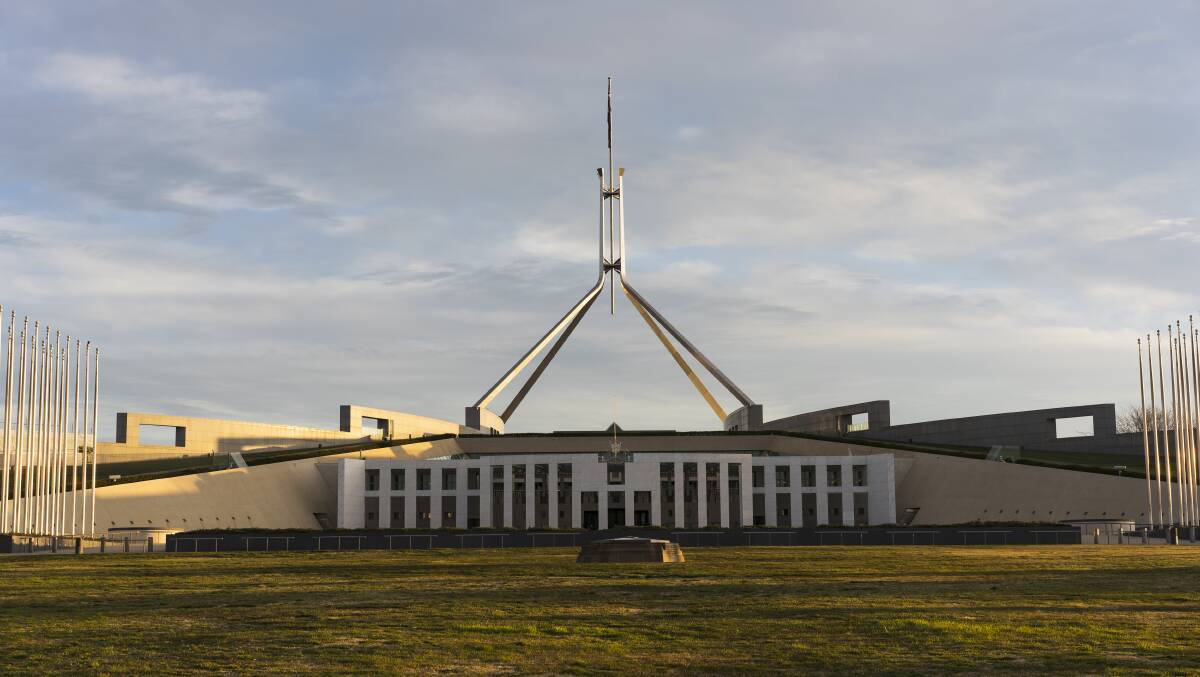
The Jenkins Report provides a very useful set of recommendations to improve the workplace safety and culture in the Parliament, but a more comprehensive approach to reform is needed to restore the role and reputation of the Parliament as the central institution in Australia's democratic system.
Subscribe now for unlimited access.
$0/
(min cost $0)
or signup to continue reading
In the absence of a broader framework for reform, there is the risk of further fragmentation of management arrangements and failure to identify responsibility for the leadership and stewardship of this vital institution.
Part of the reason reform is so hard is the tension between two of the institutions' core functions - to authorise the actions of the executive (particularly to spend money) and to scrutinise those actions - which makes collaboration and shared leadership difficult.
The blurring of the executive and the legislature in parliamentary systems makes management particularly challenging. In addition, the third core function - to provide a deliberative forum for public policy debate and engagement - has been largely replaced by superficial political point-scoring.
There is a need to redefine and strengthen Parliament's institutional management capacity.
Case for a Parliamentary Commission
Recent doctoral research by Val Barrett, a former senior executive in the Australian Parliamentary Service, compared management arrangements in the Australian and United Kingdom parliaments (ANU Press will be publishing an edited version later this year.)
Both parliaments have experienced loss of public standing with each responding in its own way to the criticisms and crises it has faced but so far with limited success.
The UK has established "commissions" to oversee the management of each House. These provide support to the Speaker of the House of Commons and the Lord Speaker of the House of Lords respectively by providing a wider leadership team for each chamber including the leaders of the parliamentary parties and some external experts.
While these commissions have helped to improve aspects of the UK Parliament administration and addressed some of the cultural problems amongst employees (which parallel concerns in Australia), the separate commissions have not provided necessary oversight and support for parliamentary management functions which continue to receive far lower priority than procedural issues.
In Australia, the Parliament relies on its Presiding Officers - the Speaker and the President - with some support on budgetary and staffing matters from their respective administrative committees but with no formal involvement from external experts.
Moreover, the Australian Speaker lacks the independence and profile of the UK Speaker and the Presiding Officer positions are usually filled by MPs who lack the standing within their parties to become ministers.
As Barrett argues, Australia should establish a single Parliamentary Commission to support the Presiding Officers to attend to the standing of the institution as a whole, overseeing administrative functions and exploring how the Parliament might re-establish a significant role in public policy deliberation.
The Leadership Taskforce established to oversee implementation of the Jenkins Report recommendations has a broad membership not dissimilar to that needed for an Australian Parliamentary Commission.
The Presiding Officers might continue to exercise the formal functions in each chamber and in overseeing the Parliamentary Service, but with the active advice and support of the Commission.
Parliament's Administrative Structures and Functions
Administration of the Parliament is managed primarily by the Parliamentary Service employed under the Parliamentary Service Act.
In addition, there are the political staff of MPs employed under the Members of Parliament (Staffing) Act. Other functions are carried out by public service agencies, for example the Department of Finance manages the pay and conditions of MOP(S) Act employees, the costs of MPs electoral offices and MPs' work expenses, and the Independent Parliamentary Expenses Authority (within the Finance portfolio) oversees management of the latter by MPs and their staff.
While some blurring of the responsibilities of the executive and the legislature is unavoidable given our parliamentary system, this arrangement seems unnecessarily complex.

Although Jenkins' recommendations go a considerable way to address the problems of culture in the parliamentary workplace, the new bodies she recommends could further fragment the management of administrative functions.
The new Office of Parliamentary Staffing and Culture should ensure necessary support for all employees in the Parliament or working in MPs' electoral offices but whether we also need a new Independent Parliamentary Standards Commission to enforce codes of conduct is less clear. What is needed is a clearer overall architecture.
Developments over the last three decades in ministerial staffing practices have been the cause of many of the problems in the Parliament and the APS.
If a broader Australian Parliamentary Commission were established providing a firmer framework for negotiating Parliament's budget and for overseeing its administration, the functions now carried out by Finance might be moved to the Parliamentary Services Department and the IPEA also linked more firmly to the legislature.
I suggested to both the Thodey Review and the Senate Inquiry into APS Capability that the values (and associated codes of conduct) of the different groups should be articulated reflecting their different roles and responsibilities, distinguishing for example between those in the executive and those in the legislature and those expected to be non-partisan and appointed on merit and those who have political roles.
The APS Values and Parliamentary Service Values already reflect their different lines of accountability. Taking this approach to the codes of conduct for different groups which Jenkins calls for could help to establish the clearer architecture needed.
Rather than a new Parliamentary Standards Commission, I prefer the Foster Report's earlier proposal for an expanded role for the Parliamentary Service Commissioner.
At present, the Public Service Commissioner is concurrently the Parliamentary Service Commissioner, thus making the latter role at best a part-time one. There is a strong case for separating the two appointments and giving the Parliamentary Service Commissioner (and the associated Merit Protection Commissioner) wider responsibilities under the Australian Parliamentary Commission suggested by Barrett.
MOP(S) Act Arrangements
As recommended by Jenkins, the government has announced a comprehensive review of the MOP(S) Act. The MOP(S) Act was introduced in 1984 by the Hawke government in part as an alternative to the Labor party's then policy to allow political appointments to SES positions in the APS and also to give MPs the authority to engage staff. The advantages of providing necessary support to ministers and MPs but without politicising the public service were considerable. Nearly 40 years on, however, the arrangement is proving to have its own problems.
The first steps recommended by Jenkins and agreed to by the government are important: ensuring such employment is subject to the Fair Work Act, the Age Discrimination Act and the Disability Discrimination Act and making the employing MP subject to the Work Health and Safety Act.
But a major weakness in the MOP(S) Act is its failure to distinguish between those working for ministers and those working for other MPs. New Zealand separates these two groups completely: ministerial staff are employed by a ministerial department while other MPs' staff are employed by the parliamentary service. MPs "manage" their staff, including their recruitment, but they are not the employer.
This arrangement goes too far in limiting the right of MPs to employ staff. But the MOP(S) Act could distinguish between the roles and responsibilities (and values) of the two groups of political staff and include their respective codes of conduct, thereby clarifying their respective accountability arrangements. The Act might also impose a stricter set of procedures for recruitment.
Frankly, however, developments over the last three decades in ministerial staffing practices have been the cause of many of the problems in the Parliament and the APS. Too few have experience in government administration and too few have policy expertise. The number of ministerial staff should be substantially reduced, partially offset by an enhanced role for departmental liaison officers.
- Andrew Podger is an honorary professor of public policy at the Australian National University.
Our journalists work hard to provide local, up-to-date news to the community. This is how you can continue to access our trusted content:
- Bookmark canberratimes.com.au
- Download our app
- Make sure you are signed up for our breaking and regular headlines newsletters
- Follow us on Twitter
- Follow us on Instagram

